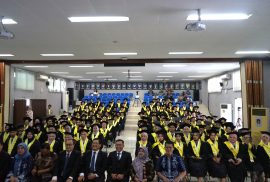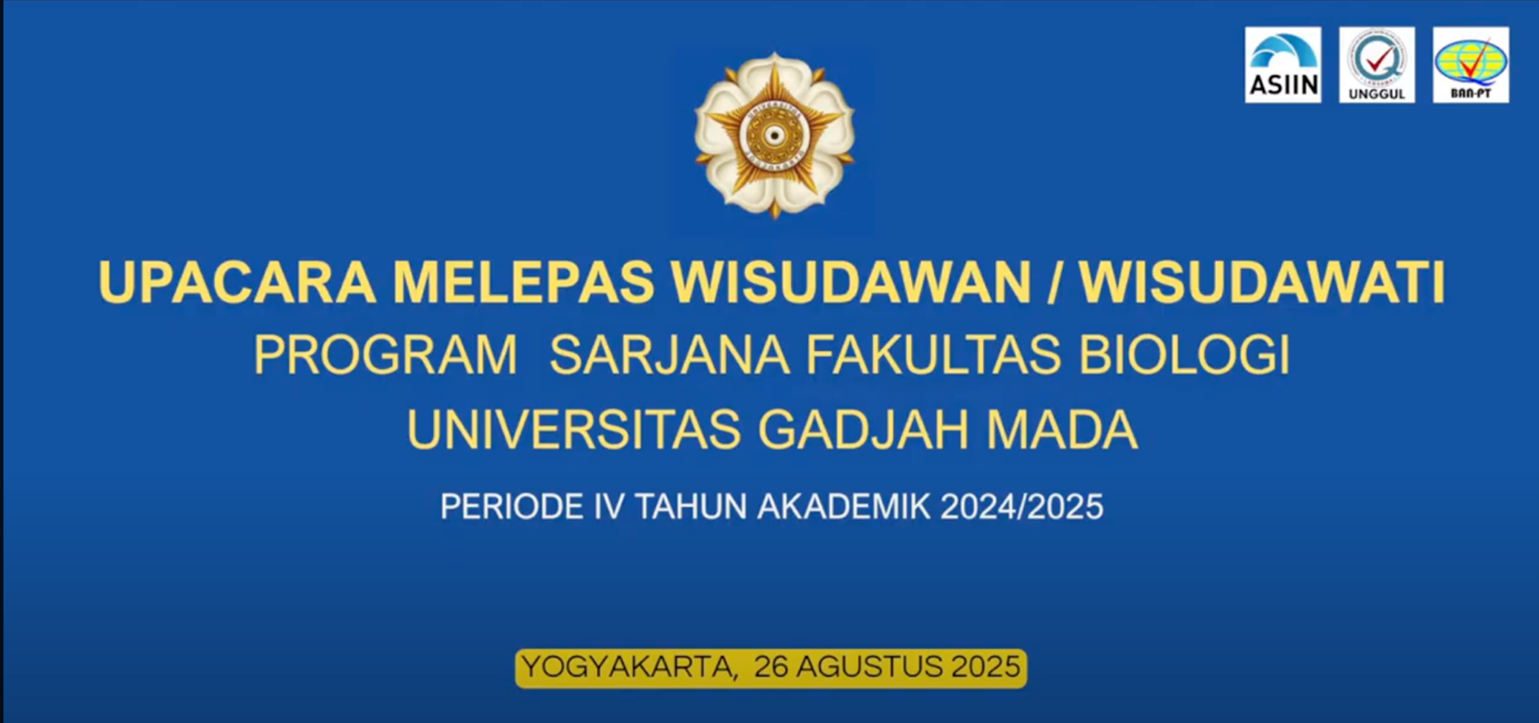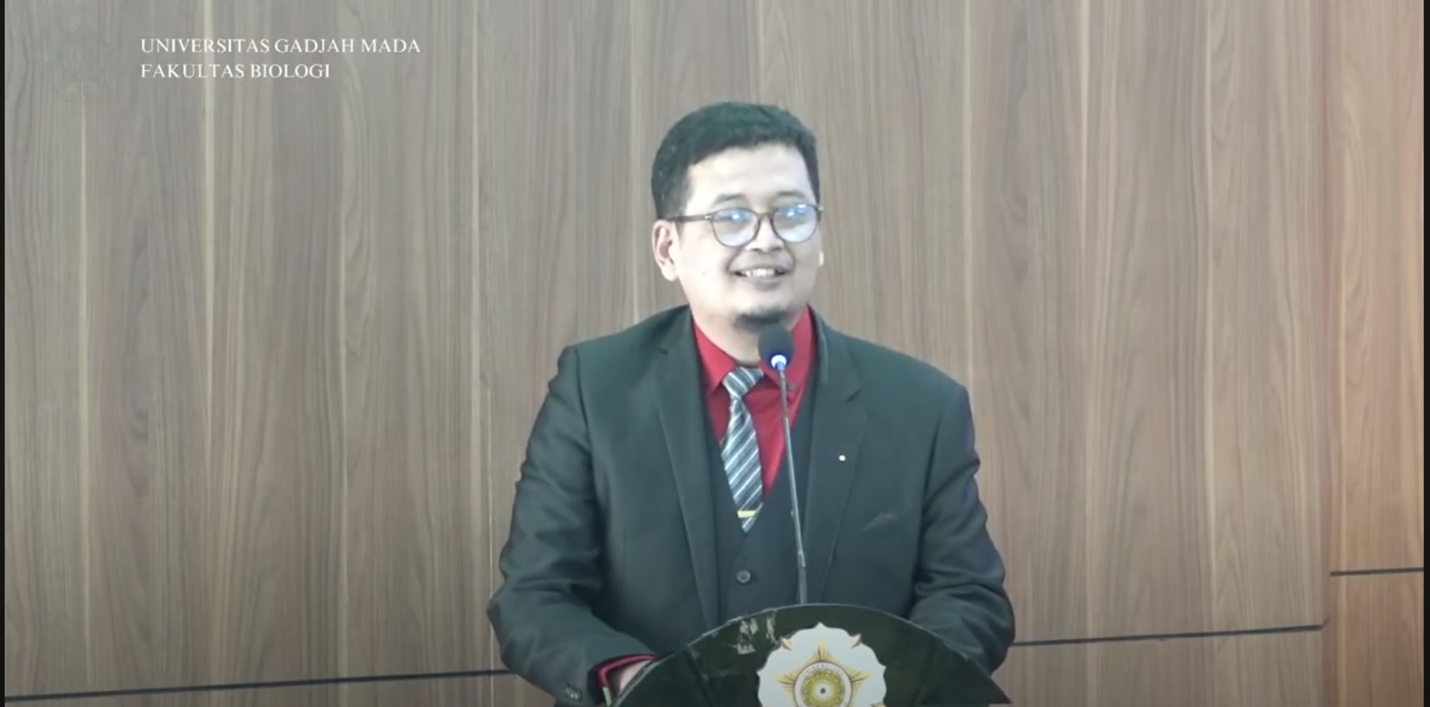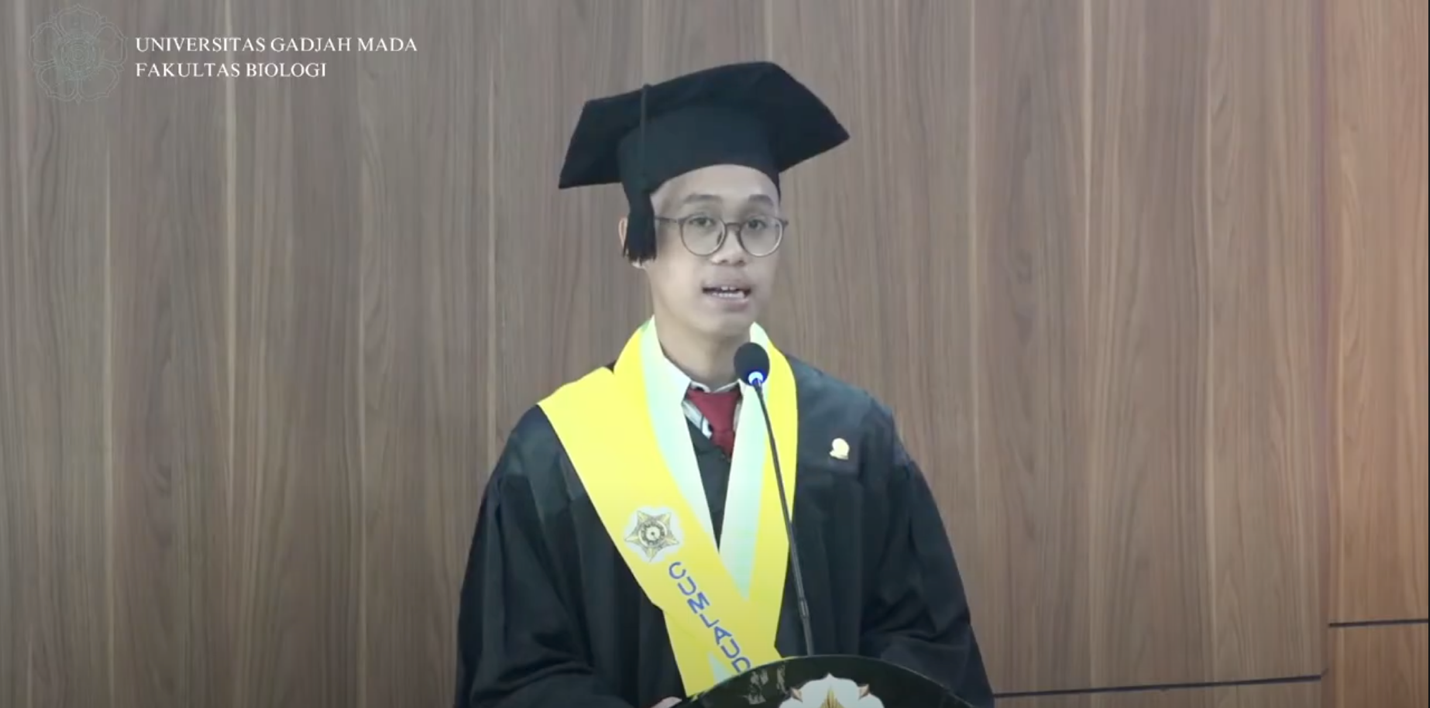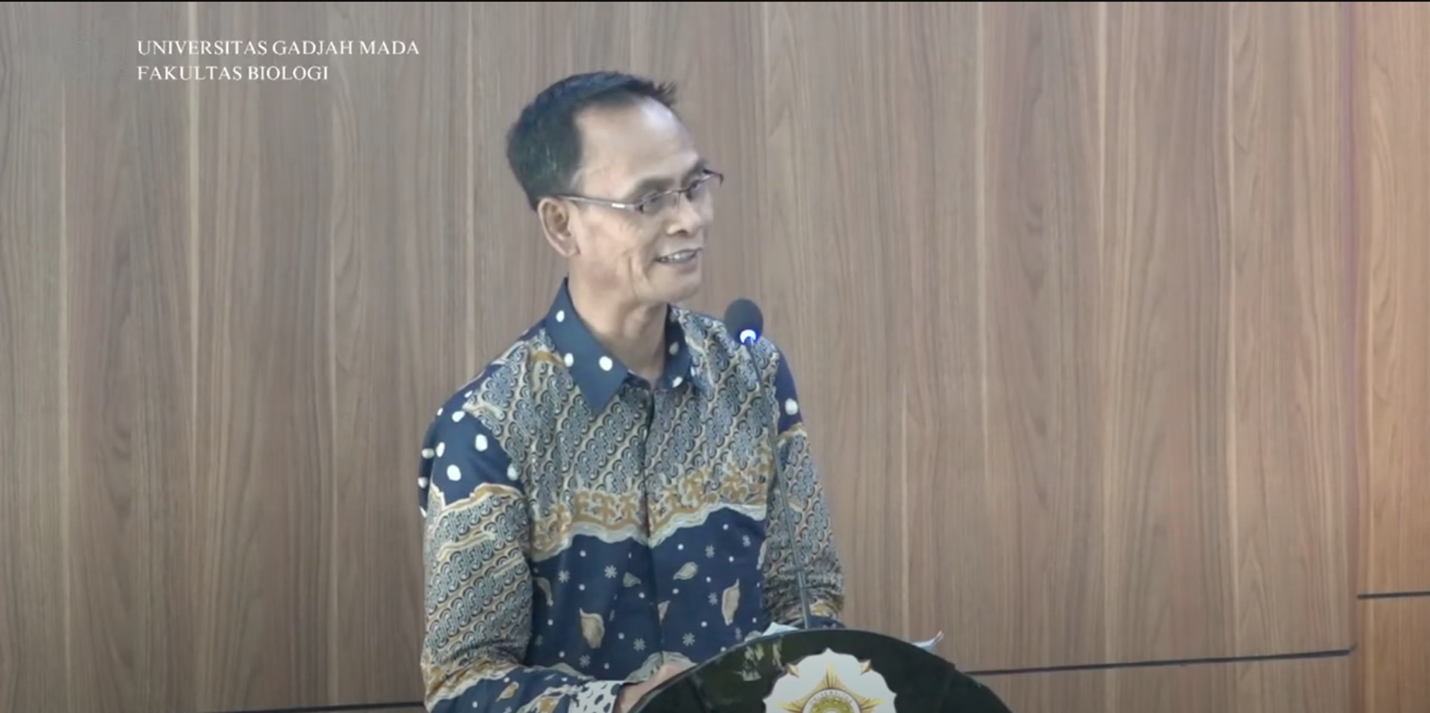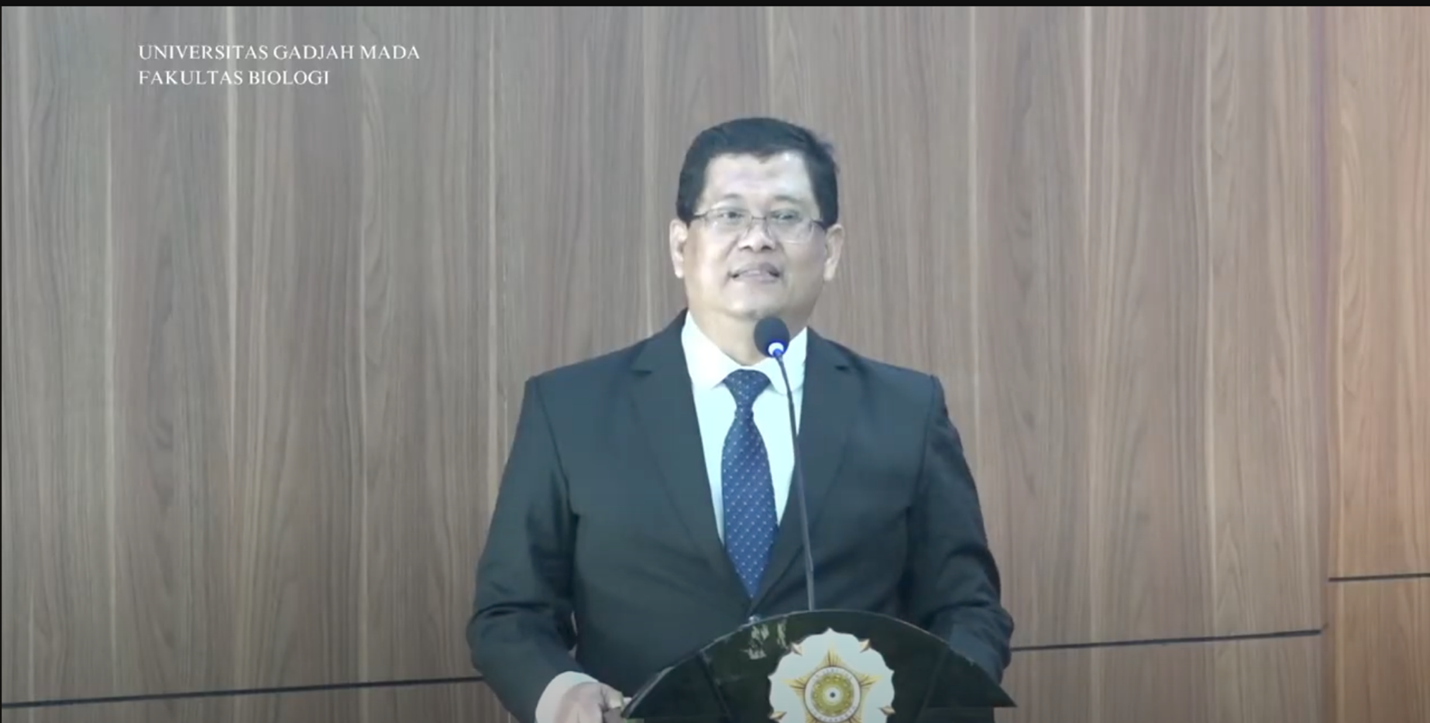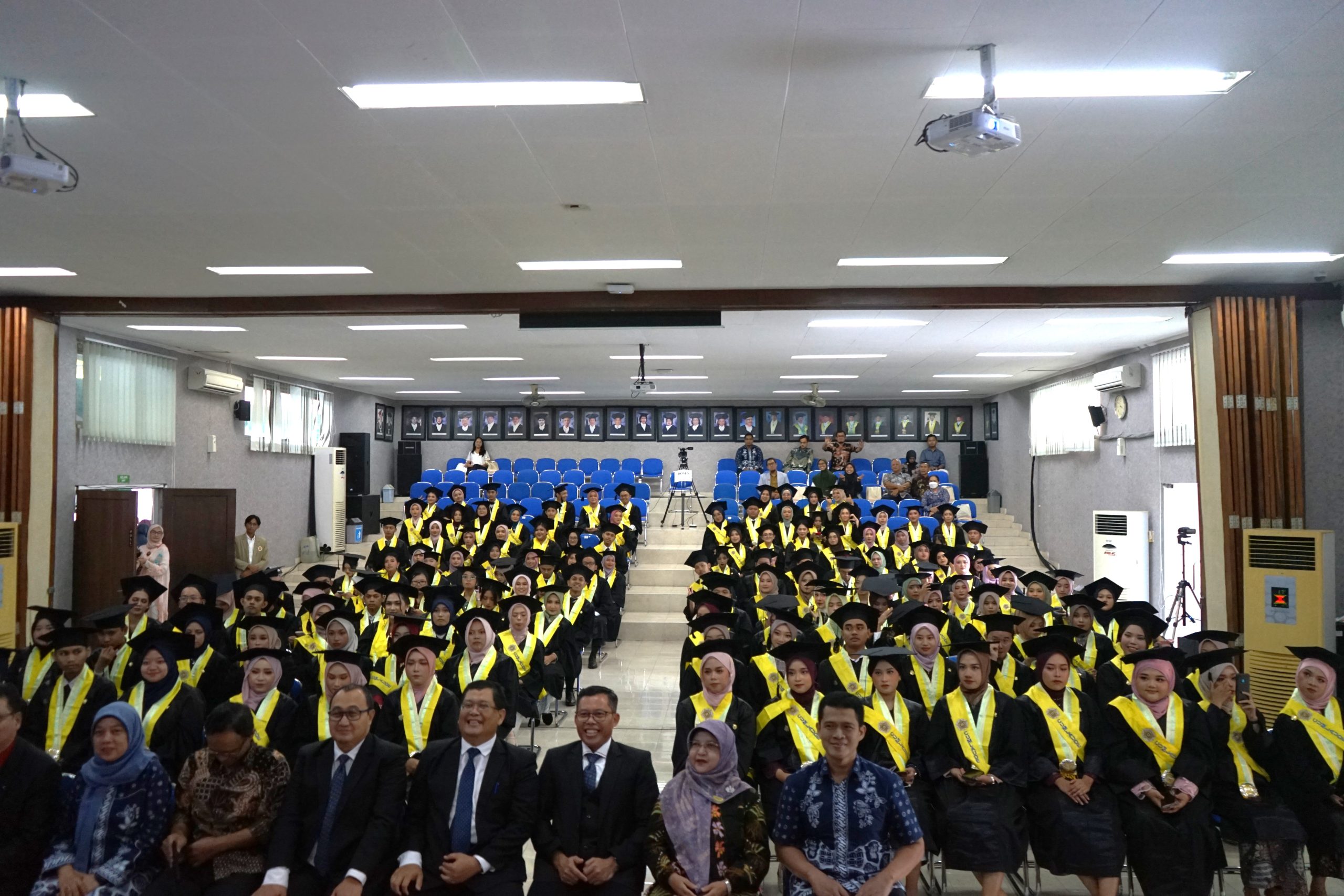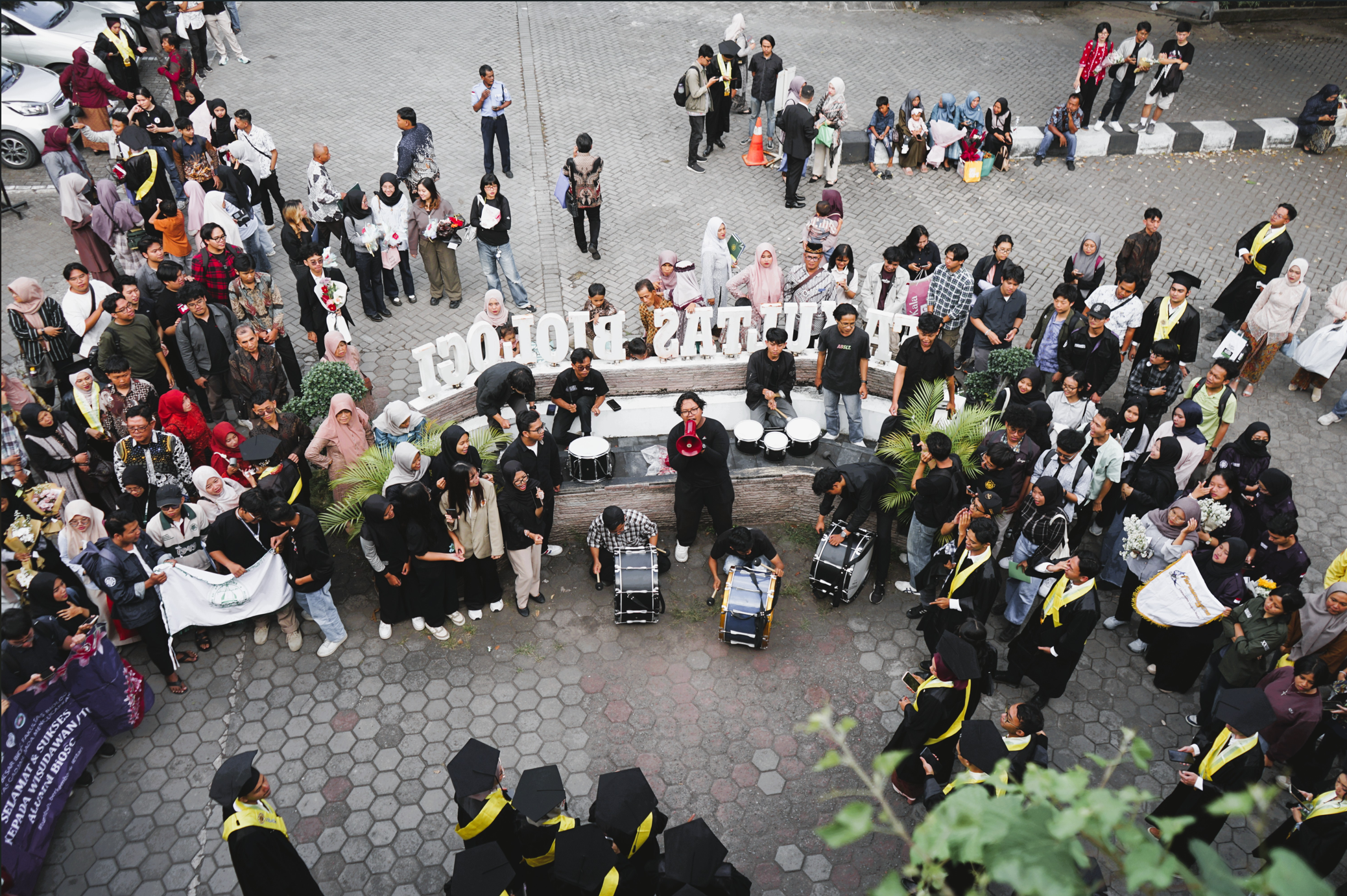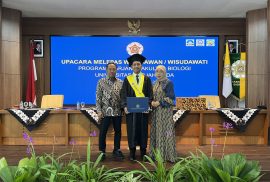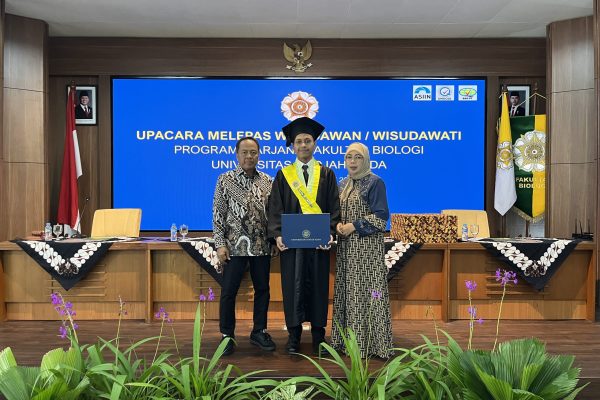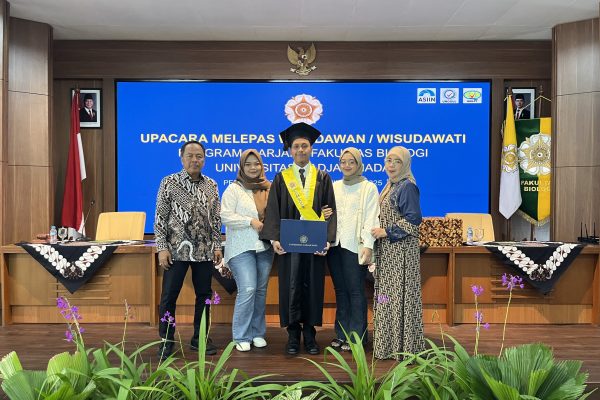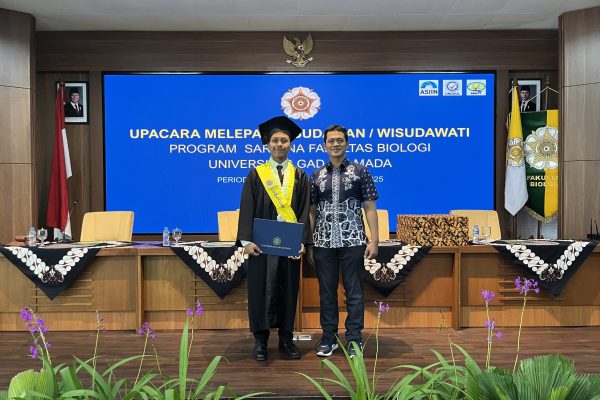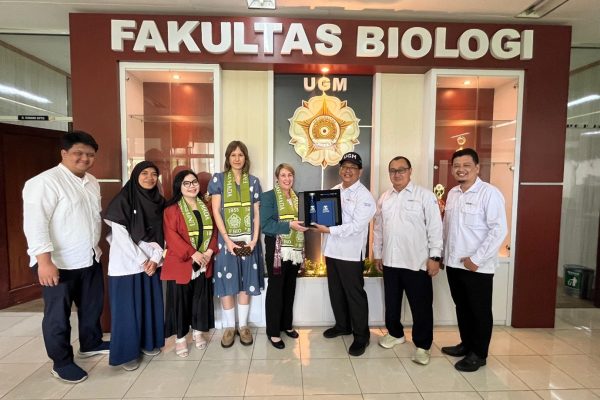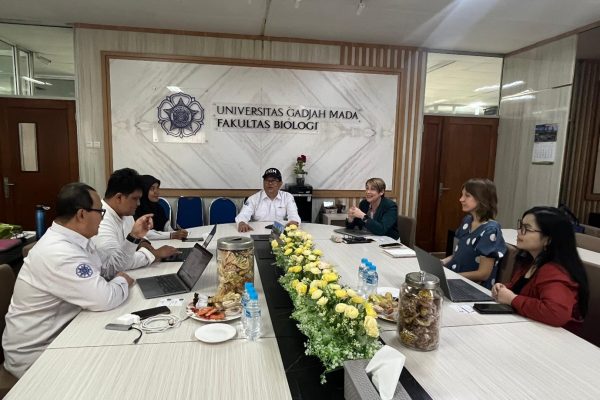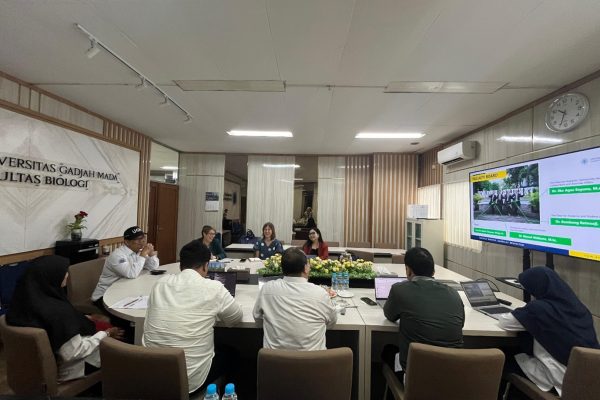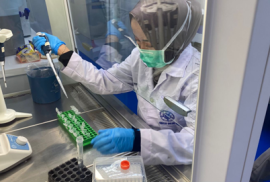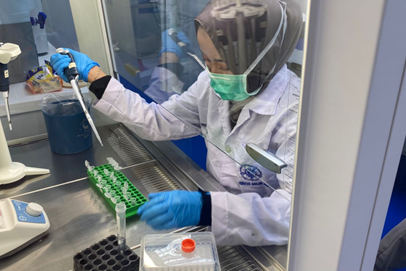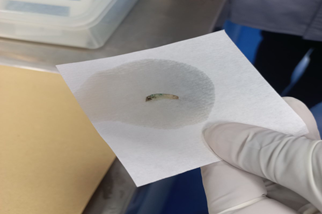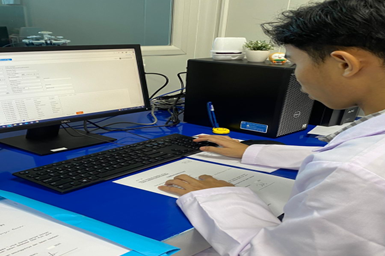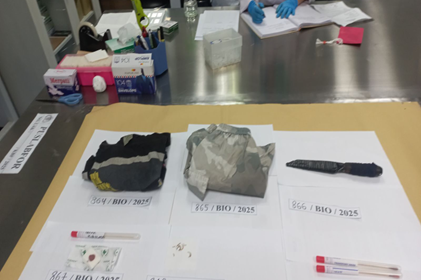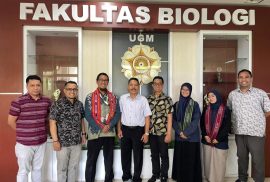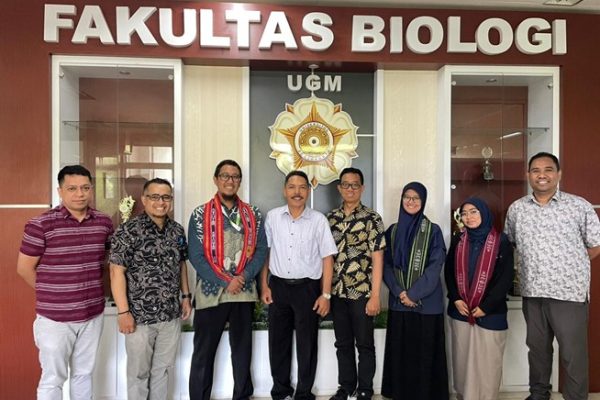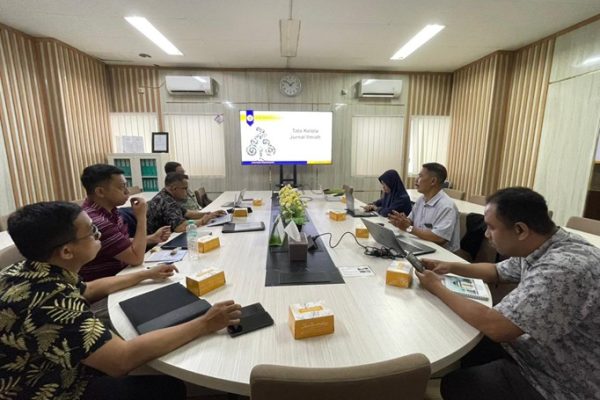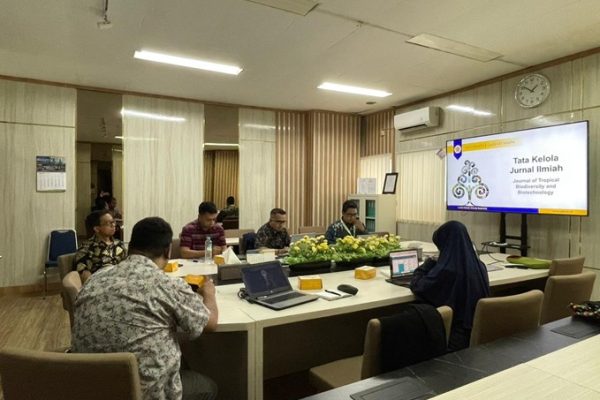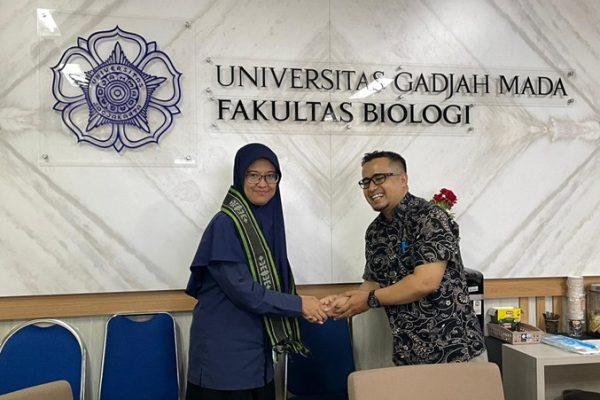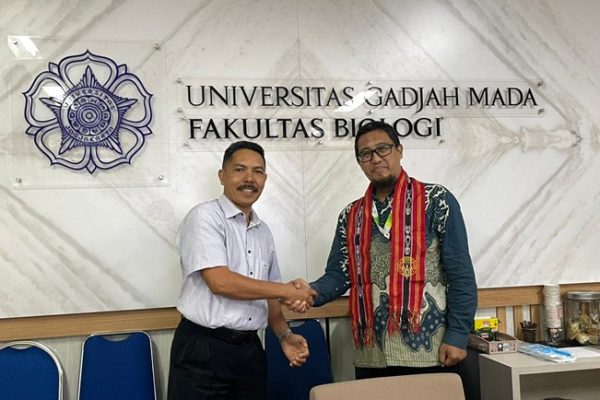Yogyakarta, 30 August 2025 — The Faculty of Biology, Universitas Gadjah Mada (UGM), and the School of Applied Sciences, University of the West of England (UWE), held an online meeting on Friday, 29 August 2025, to strengthen research and educational collaboration between the two institutions.

The meeting was attended by key representatives from both universities. From the Faculty of Biology UGM, participants included Dr. Eko Agus Suyono, M.App.Sc., Vice Dean for Research, Community Service, Collaboration, and Alumni Affairs; Dr. Nur Indah Septriani, M.Sc., Head of the Office of International Affairs (OIA); and Mukhlish Jamal Musa Holle, DPhil., lecturer at the Laboratory of Ecology and Conservation. From UWE, Dr. Adrian Crew, Head of the MRes Applied Sciences Program, joined the meeting along with one of his students, Tawny Bucks.
The agenda focused on updates regarding ongoing joint research projects and discussions on future opportunities for collaboration in both research and teaching. One of the key highlights was a project conducted in Simeuleu Island, Aceh, which emphasizes regenerative agriculture practices to support ecosystem sustainability and improve community well-being. The project is a collaborative effort between UGM and UWE, with direct involvement from Tawny Bucks and Syefrina Rosyida, an alumna of UGM’s Master Program in Biology.
Both institutions reaffirmed their commitment to continue the collaboration on an equal and sustainable basis. As an initial step, they agreed to develop a concept note that will serve as the foundation for further research projects in regenerative agriculture.
“This meeting marks an important momentum to strengthen research synergy between UGM and UWE, especially on global issues such as sustainable agriculture and conservation,” said Dr. Eko Agus Suyono.
The collaboration is expected not only to generate academic innovation but also to deliver real solutions to environmental and social challenges, particularly in remote areas such as Simeuleu. It also opens up wider opportunities for students and researchers from both institutions to engage in international academic activities. In line with the commitment to support the achievement of the Sustainable Development Goals (SDGs), this initiative contributes to enhancing food security (SDG 2), strengthening climate action (SDG 13), and promoting the sustainable protection of terrestrial ecosystems (SDG 15). Through this partnership, UGM and UWE are taking concrete steps to integrate academic research with global sustainable development objectives.


